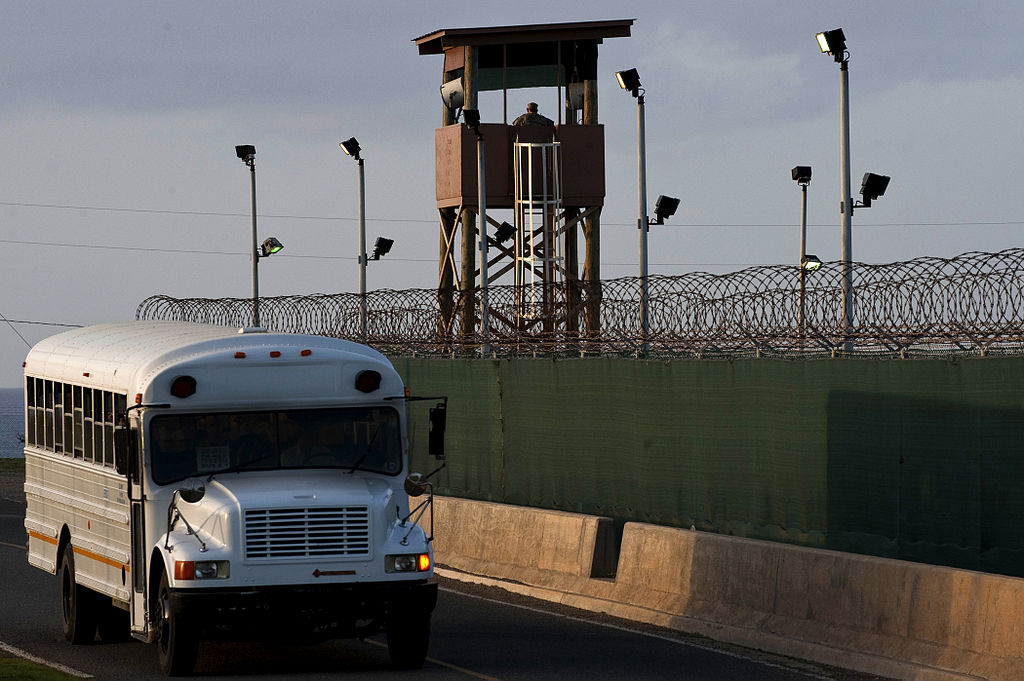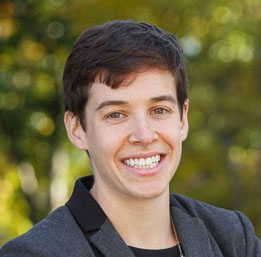Last Week at the Military Commissions: Defense Teams Assert Conflict in Session Cut Short by Medical Emergency
On Jan. 28 and 29, the military commission in United States v. Khalid Sheikh Mohammad, et al. (the 9/11 military commission) reconvened for pretrial proceedings, picking up from its November sitting. The session was scheduled to last for a week but was cut short on Tuesday due to a medical emergency on the part of the military judge, Col. Keith Parrella.

Published by The Lawfare Institute
in Cooperation With

On Jan. 28 and 29, the military commission in United States v. Khalid Sheikh Mohammad, et al. (the 9/11 military commission) reconvened for pretrial proceedings, picking up from its November sitting. The session was scheduled to last for a week but was cut short on Tuesday due to a medical emergency on the part of the military judge, Col. Keith Parrella. During a full-day open session on Monday, the commission focused on whether the interrogation of a former defense paralegal by outside government investigators about his work for the military commissions creates a conflict for the defense attorneys implicated by the questioning, such that they cannot ethically proceed with client representation. In a brief session on Tuesday, the parties discussed whether in-person testimony by a former interpreter for the defense team, who did not disclose his prior employment by the CIA, should be taken wholly in closed session or in a mix of open and closed sessions.
A summary of each day’s proceedings is below.
Monday, Jan. 28
Judge Parrella began the Jan. 28 session, as usual, by noting for the record the members of each defense team and the prosecution who were present. Capt. Mark Andreu, military counsel for defendant Ammar al Baluchi, was absent due to an illness and James Connell, learned counsel for al Baluchi, requested a continuance until Andreu was able to return. Parrella decided that it was not necessary to delay proceedings as three other attorneys, including Connell, were present in court and able to represent al Baluchi.
The judge then conducted a colloquy with the defendants, advising them that they have a right to be present, that a voluntary absence is considered a waiver of that right, and that their attendance may be compelled, and asking each if he understood. With the exception of Ramzi bin al-Shibh, all acknowledged their understanding. As he did during the previous session, bin al-Shibh said he refused to answer Parrella because he believes Parrella is not properly seated as the military judge in the case. Parrella responded that while the defense is free to challenge his qualifications to preside as a legal matter, he interpreted bin al-Shibh’s challenge as extending to his general authority to control proceedings and the courtroom. Accordingly, he expressed concern about bin al-Shibh’s willingness to adhere to the rules of this commission and raised the possibility that bin al-Shibh might pose a safety risk to others in the courtroom. Jim Harrington, learned counsel for bin al-Shibh, responded that there was no basis for concern and that bin al-Shibh always abided by the rules of the commission and the directions of the guard force, and that the challenge was a purely legal one. Parrella asked Harrington to speak with bin al-Shibh and confirm that that was the case, which Harrington did and so reported to the commission later in the day.
After recapping an in camera administrative session held on Jan. 26, the parties turned to Appellate Exhibits (AE) 613 and 615. The filings concern a potential conflict of interest raised by the defense teams, stemming from a declaration submitted by a former military paralegal for Walid bin Attash’s team, informing the commission that he had been overtly surveilled, searched upon entering the base in Fort Hood, Texas, and subsequently interrogated and polygraphed by individuals who identified themselves as FBI agents about the work of the 9/11 commission defense teams and relationships among team members. This declaration raised concern among the defense attorneys for bin Attash and the other defendants that they might as well be under investigation, which would present a conflict with their ongoing representation of their clients. To determine whether a conflict existed, Parrella conducted an ex parte session with a special review team (SRT) consisting of representatives from the U.S. Attorney’s Office for the District of Columbia, the Department of Justice Criminal Division, and the FBI; the prosecution was excluded to prevent further conflicts and the defense teams were barred due to the sensitivity of the national security matters in question. Based on the paralegal’s declaration and the ex parte hearing, Parrella issued an opinion finding that no current member of a defense team was under investigation and, therefore, no conflict existed for any attorney that would interfere with his or her ability to move forward with the case.
The defense attorneys pushed back on Parrella’s determination and argued that they have an independent duty to inquire and decide for themselves whether or not a conflict exists. Speaking in turns, they stressed that Parrella’s conduct of the ex parte proceeding put the defense teams at a severe information disadvantage and deprived them of the ability to fully understand what had happened and the likelihood that they were under, or could in the future be under, investigation. David Nevin, learned counsel for Khalid Sheikh Muhammad, detailed nine prior instances of government interference with the defense teams (including previous investigations into defense personnel and FBI recruitment of a mole inside one team) and said that the defense was justifiably alarmed by the harassment of and effort to solicit privileged attorney-client information from the paralegal, both on its own terms and as part of a larger pattern. Nevin asked the judge to order the SRT to disclose to the defense any information they have about the incident and how the current defense teams might be implicated, so that the attorneys could decide for themselves if there was an ongoing conflict with their representation.
Parrella said he directed the SRT to release redacted declarations but insisted that he believed his review of the relevant information and determination that no conflict existed was sufficient and that the attorneys could rely on his assessment in making theirs. The defense attorneys respectfully disagreed, stressing that all they had been presented with were Parrella’s conclusions, not the underlying facts, and that they had an ethical obligation to seek more information. They also pointed out that the previous military judge, Col. James Pohl, had been wary of the statements made by an SRT related to a previous incident because it became clear that the SRT was not being completely candid with the commission, and they encouraged Parrella to be equally skeptical of what he was told.
Parrella reaffirmed his ruling that no conflict existed and that the defense teams’ speculation that they might be under investigation was not a basis for finding a conflict of interest. He accordingly informed the defense attorneys that if they chose not to participate, “notwithstanding clear findings by the commission issued after a careful factual inquiry, then this would constitute waiver of their right to participate in this week's proceedings.”
Tuesday, Jan. 29
On Tuesday afternoon, the parties reconvened in open session to discuss AE 616, a defense objection to proceeding in closed session, as opposed to a public hearing, with the testimony of bin al-Shibh’s former interpreter. Defense attorneys for Muhammad and bin Attash renewed their objections regarding the conflict of interest discussed on Monday and declined to participate in the proceedings pending resolution of those issues.
Judge Parrella ordered the closed session in AE 350RRR. Prior to joining the defense team, the interpreter had worked for the CIA, a fact that he did not disclose up front and that he denied when questioned about it after bin al-Shibh recognized the interpreter from when bin al-Shibh was in CIA detention. The government later confirmed that the interpreter had previously worked for the CIA but denied that he had joined the defense team at the government’s behest to gather information.
Arguing that the testimony should be taken in open session, Alka Pradhan, counsel for al Baluchi, emphasized that “the bar to close a hearing is very, very high under both the First and the Sixth Amendments, … the Regulation for Trial by Military Commission Section 19-1, … Military Commission Rule 806(a).” Pradhan said further that, in accordance with the Supreme Court’s decision in Press-Enterprise Co. v. Superior Court, the commission should go into closed session only if the prejudice to the government’s security interest could not be mitigated, and that that was not the case here because Parrella’s order limited the subjects about which the defense could ask the interpreter and the defense agreed to allow the use of a pseudonym for the interpreter and any other restrictions on voice or images that would be necessary to protect his identity.
Parrella asked why the defense now insisted the testimony had to be in open session when they had previously offered to take the interpreter’s deposition, which would not have been open to the public. Pradhan said that they had offered a deposition as an alternative prior to Parrella limiting the scope of the permissible questioning and that, in any case, they assumed a transcript of the deposition would become publicly available. The defense argued that Parrella could conduct a closed session for classified testimony, but it had to be narrowly tailored to just that testimony and the defendants should be permitted to attend in accordance with their confrontation rights under the Sixth Amendment. All unclassified testimony, meanwhile, should proceed in open session. The interpreter’s testimony is of significant public concern because the interpreter “is being called to discuss how he ended up in a situation that severely compromised and violated the defendant’s privilege, at a minimum, and may have constituted government intrusion into their capital defense.”
The prosecution responded that Parrella’s order to proceed in closed session was correct and that the defense bore the burden of establishing why that decision should be reconsidered.
Parrella took the arguments under advisement and said he would issue a ruling as soon as possible so that the government could ensure the interpreter was available at the required time and that the defense teams could inform their clients whether they would be permitted to attend.
Postponement
The rest of the week’s proceedings were abruptly cancelled on Tuesday evening due to Parrella needing to be evacuated for emergency medical treatment. The next session of the 9/11 commission is currently scheduled for late March.



.jpg?sfvrsn=d5e57b75_5)

